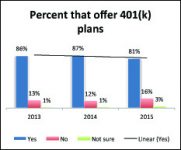What Does ‘Hours Worked’ Mean?
Under the Fair Labor Standards Act (FLSA), employers must pay employees at least the minimum wage for all hours worked. This sounds simple enough. But what does “hours worked” mean in this context? Does it mean just the hours that the employee is scheduled? What about time spent on call? What about break time? What […]










